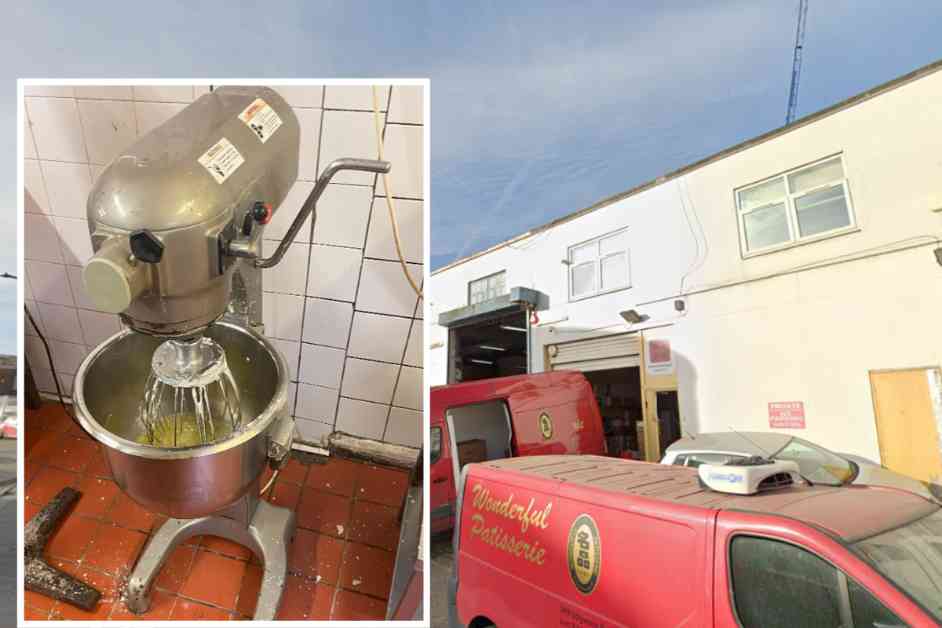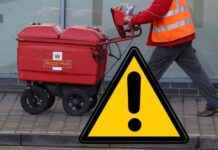A food manufacturer in Wembley has recently faced heavy penalties for endangering the safety of its employees. Oriental Delight, located in Second Way, Wembley Park, was fined £150,000 for multiple violations related to unsafe machinery in the workplace. This significant fine was imposed due to the company’s repeated failure to address issues with machines that posed serious risks to their workers.
The specific safety concerns at Oriental Delight revolved around three machines that were found to have damaged interlocking safety devices and missing safety guards. These critical safety features are essential to protect employees from potential injuries and accidents while operating machinery. Despite being issued prohibition notices in both 2016 and 2019 for similar safety violations, the company failed to rectify the issues, as evidenced by a routine inspection by the Health and Safety Executive (HSE) in October of the following year.
HSE inspectors were alarmed by the company’s blatant disregard for the previous warnings and continued use of unsafe machinery. The persistence in operating machinery in an unsafe manner demonstrated a lack of concern for the well-being of their employees. In the eyes of the law, Oriental Delight had clearly violated The Provision and Use of Work Equipment Regulations 1998, leading to the hefty fine of £150,000 and additional costs of £3,020 imposed by Westminster Magistrates’ Court on September 4.
Subheading 1: The Importance of Workplace Safety in the Food Manufacturing Industry
The food manufacturing industry is one that requires strict adherence to safety regulations and standards due to the inherent risks associated with handling machinery and food processing equipment. Ensuring the safety of employees should be a top priority for all companies operating in this sector, as negligence can lead to severe consequences, both in terms of legal penalties and human costs.
Oriental Delight’s case serves as a stark reminder of the critical importance of maintaining a safe working environment in the food manufacturing industry. The failure to address known safety issues not only puts employees at risk but also reflects poorly on the company’s commitment to upholding basic workplace safety standards. Employers in this industry must recognize the potential dangers posed by faulty machinery and take proactive measures to mitigate risks and protect their workers.
Subheading 2: The Role of Health and Safety Inspectors in Ensuring Compliance
Health and Safety Executive (HSE) inspectors play a crucial role in monitoring and enforcing compliance with safety regulations in the workplace. Inspections conducted by HSE serve as a means to identify potential hazards, assess risks, and ensure that companies are taking the necessary steps to protect their employees. In the case of Oriental Delight, the repeated violations uncovered during inspections raised serious concerns about the company’s commitment to safety.
Inspector Marcus Pope’s statement following the court ruling highlights the HSE’s firm stance on prosecuting companies that fail to address serious health and safety failings. By holding Oriental Delight accountable for their negligence, the HSE sends a clear message to the food manufacturing industry that non-compliance will not be tolerated. Employers must take heed of these warnings and prioritize the safety of their workers to avoid facing similar consequences.
Subheading 3: Lessons Learned and Moving Forward
The aftermath of Oriental Delight’s case serves as a valuable lesson for other companies in the food manufacturing industry. It underscores the importance of proactive safety measures, regular equipment maintenance, and adherence to safety regulations to prevent accidents and injuries in the workplace. By learning from past mistakes and implementing robust safety protocols, companies can create a safer and more secure environment for their employees.
In conclusion, the fine imposed on Oriental Delight for endangering employee safety should serve as a wake-up call for all businesses in the food manufacturing industry. Prioritizing workplace safety is not only a legal requirement but also a moral obligation to protect the well-being of employees. By investing in safety measures, training programs, and regular inspections, companies can avoid costly fines, legal battles, and most importantly, prevent unnecessary harm to their workforce.





















